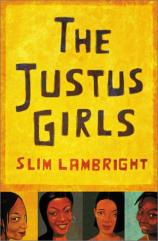Reading Group Guide
Discussion Questions
The Justus Girls

1. Rasheeda says, “We can show these young sisters by example how it’s done, what real friends are, instead of just telling them about it. We’re too late for Peach. But we can at least try to be on time for ourselves.” What are “real friends”? What is the importance of women’s friendships compared to family ties and love relationships? In the novel, which relationships are the most positive?
2. After the funeral, Sally Mae, who is the only Justus Girl born in the South, and Jan, talk about “the ways of Black folk” regarding mourning rituals and Black Baptist funerals. Rasheeda doesn’t know them. Why not? Princess, Peaches’ daughter, also doesn’t know. What are some of those customs? What is the value of knowing your cultural heritage, and what are the ramifications of not knowing?
3. Another problem for some of the Justus Girls is their lack of a stable family life while growing up. Peaches’ home life is perhaps the most difficult. Does her childhood predict or predetermine her future? What is the home life of the other three girls. How big a factor is it in what happens to each of them?
4. After Peaches’ terrifying experience with Uncle Elmo, she runs to Vaa, the transvestite, for help. What is Uncle Elmo’s profession? Why do you think Slim Lambright makes Vaa a hero and Uncle Elmo a villain?
5. Ursula, Peaches’ mother, is a complex character. We first meet her when she “crashes” the funeral. Should she have been invited? Discuss her relationship with her daughter. What are her faults? What are her positive points?
6. The chapter when Jan is mugged by the child JayRon has an unexpected resolution. What larger messages about compassion and forgiveness does this chapter contain? Do you think it also takes a position on the individual’s responsibility for solving social issues? How much should an individual do? When should the community get involved? When should the state?
7. Sally Mae also has to learn to forgive. Why? At the end of Chapter 26, her half-sister Bay Girl says, “Thangs got to be set right.” What is she talking about? Is there a cosmic justice to consider in life?
8. What is the significance of having the last chapter of the book cover the Million Woman March?
9. Red Top, in the final words of Chapter 28 near the end of the book, says, “This was their life, celebrating small victories, while keeping an eye open for the next crisis....That’s just the way it was for women like her. That’s the way it was for the Justus Girls. For women like us.” Which women is she talking about? Black women? Blue-collar and poor women? All women?
10. Do you think the title “The Justus Girls” has a deeper meaning? What other plays on words do you find in the title and how do they relate to the novel?
The Justus Girls
- Publication Date: June 19, 2001
- Hardcover: 356 pages
- Publisher: Harper
- ISBN-10: 0060184760
- ISBN-13: 9780060184766






